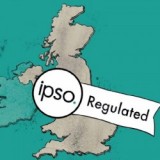 A weekly newspaper has been rapped by the press watchdog after naming a source in breach of a prior agreement.
A weekly newspaper has been rapped by the press watchdog after naming a source in breach of a prior agreement.
The Independent Press Standards Organisation has upheld a complaint made by the man after he was named in a story by the Central Fife Times & Advertiser.
The story in question reported on an ongoing dispute between a dairy farm and its neighbours, and the named man was quoted as having contacted the council about the facility’s “simply ridiculous” noise levels.
The man had reached an agreement with a Times & Advertiser reporter who wrote a previous story on the issue that he would not be named by the paper, but the follow-up story under complaint had been written by a different journalist due to his colleague being on holiday.
Complaining under Clause 1 (Accuracy) and Clause 14 (Confidential sources) of the Editors’ Code of Practice, the man said he was very distressed to see his name appear in the story when this was contrary to the agreement he had previously made.
He said that the original reporter had acknowledged that there was an agreement that he would be a confidential source because after the story under complaint was published, the journalist had contacted him via Facebook.
In the message, the reporter wrote: “[Complainant], [original reporter] here, I am due you an apology.
“Before I went on holiday I forgot to tell [new reporter] to ensure that he did not mention your name in any story on [the dairy] and treat it in the same way we did the right-away article some weeks ago.
“I found out yesterday that your name had been included in the story published on Wednesday.”
In response, the Times & Advertiser sincerely apologised for the distress caused to the man and said that the inclusion of his name in the story was an honest mistake, adding there had been communication difficulties whilst the newspaper staff had been forced to work remotely.
The paper said that if the new reporter had been aware the man had previously expressed a wish to be anonymous, he would have made sure that he was not named in the article.
Although the Times & Advertiser accepted it should not have named the man, it noted that the concern attributed to him in the article was not confidential information about him, and provided examples of where he had objected publicly on the council’s website to the dairy farm and its operations.
The paper said that therefore, the man’s dissatisfaction with the farm was already in the public domain at the time of publication.
The new reporter, the original reporter, and the group editor had all contacted the man individually to apologise and had offered to print a full apology in the next edition of the newspaper when the man initially indicated that this was something he wanted.
IPSO found there had been an explicit agreement in writing between the man and the first reporter that the former would not be identified in relation to information he provided for publication.
Regardless of whether any of the information had been placed in the public domain by other means – which the complainant denied – in light of this confidentiality agreement, the man was a confidential source and the publication of his identity in connection with his comments constituted a clear breach of Clause 14.
IPSO commended the paper’s swift response to the complaints and its attempts to resolve the matter prior to the complainant’s contact with IPSO, but it was also mindful of the distress caused to the man as a result of his identification in the story.
The Committee noted that the incident had exposed shortcomings in Times & Advertiser’s systems for handling staff absences, which in this instance had led to a significant breach of the Code.
The complaint was upheld, and the full adjudication can be read here.

 Follow HTFP on Twitter
Follow HTFP on Twitter